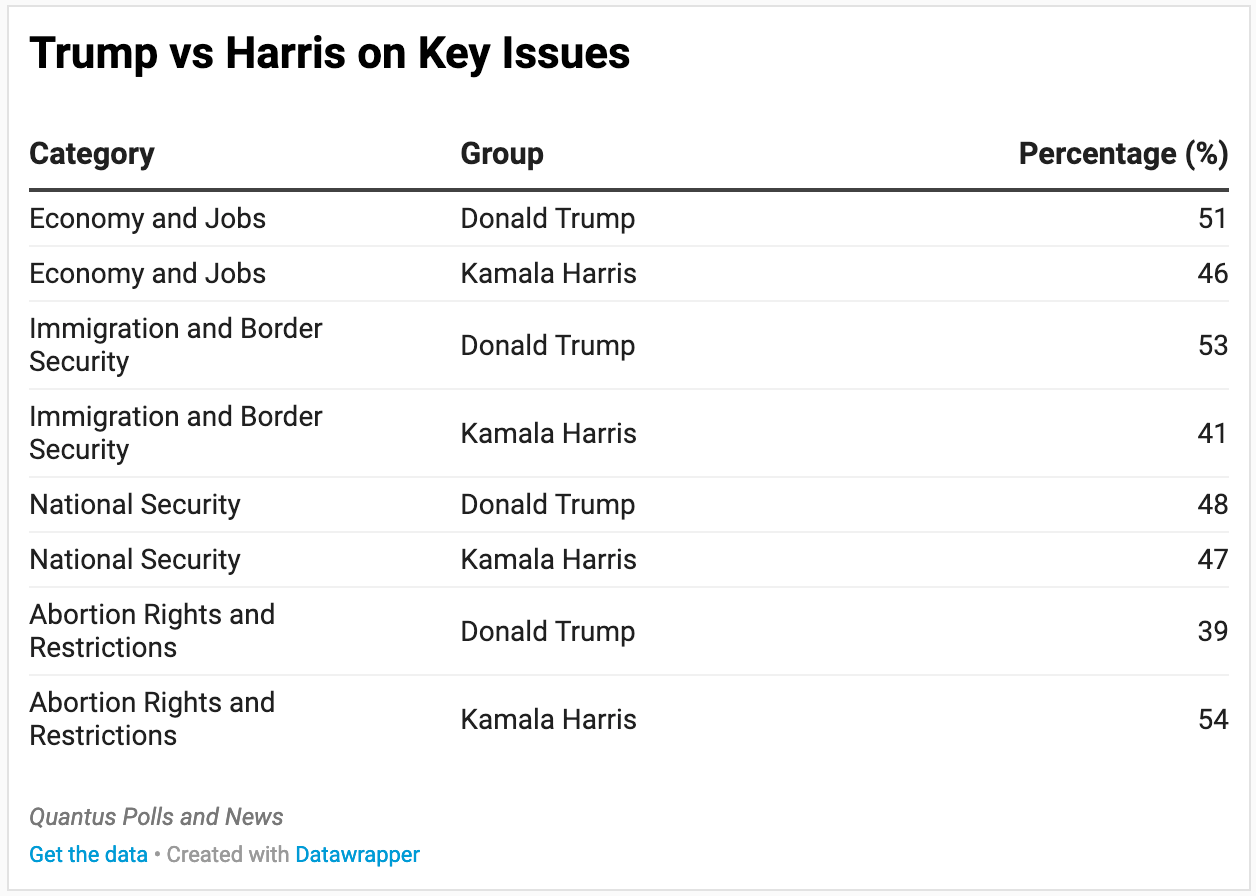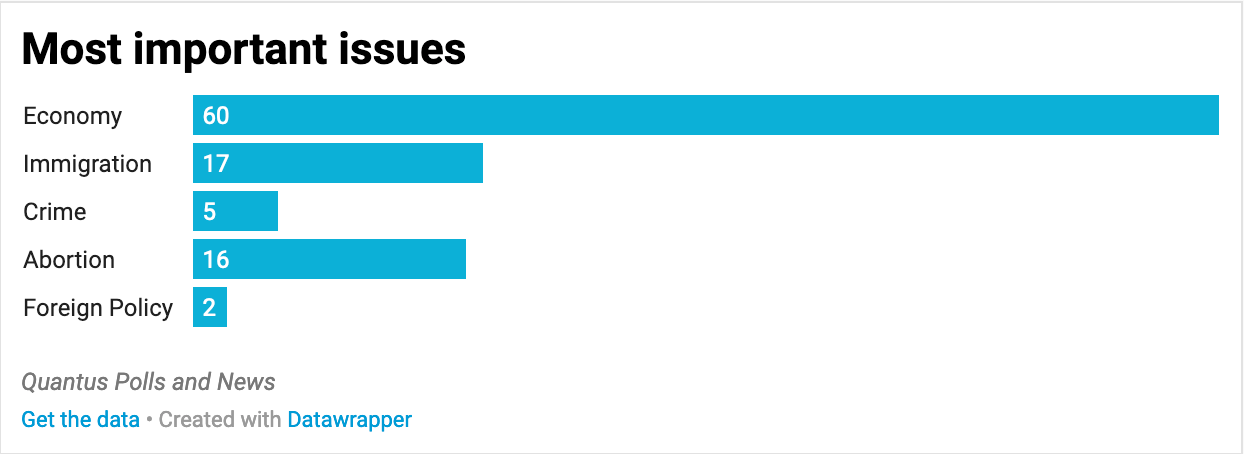2024 Presidential Election Survey: A Tight Race in North Carolina
Analyzing Voter Preferences, Candidate Favorability, and Key Issues Ahead of the Election
Quantus Polls and News
2024 General Election North Carolina Survey
Date: September 11-12, 2024
Margin of Error: ±3.4%
Introduction
Quantus Polls and News conducted a survey among 815 likely voters in North Carolina between September 11-12, 2024. The survey provides a snapshot of the current political landscape as the 2024 U.S. Presidential Election approaches, focusing on the contest between Donald Trump and Kamala Harris.
Methodology
The sample for this survey included 815 likely voters in North Carolina. The data was collected via online panels to ensure accurate representation of the state electorate. Weighting was applied using demographic variables such as gender, age, race/ethnicity, education (as per U.S. Census data), and voter registration and turnout data (sourced from state records and exit polling). The margin of error for this survey is ±3.4%, ensuring a robust reflection of voter sentiment. (Access cross tabs and questions here.) This poll was sponsored by Trending Politics News.
Electorate Demographics
The survey’s weighted results reflect North Carolina’s diverse electorate. Republicans make up 37% of likely voters, while Democrats comprise 33%, and Independents account for 29%. The gender distribution of respondents is 48% male and 52% female, mirroring the state's voting base. Age-wise, the electorate is split with 14% aged 18-29, 21% aged 30-44, 38% aged 45-64, and 27% aged 65 and older. The racial composition includes 71% White, 19% Black, 5% Hispanic, and 5% other racial groups. 64% of respondents are non-college educated, while 36% have college degrees.
Voting History and Political Affiliation
When asked about their 2020 voting behavior, 47% of respondents supported Donald Trump, 46% voted for Joe Biden, 5% did not vote or did not remember their choice, and 2% voted for another candidate. This reveals a closely divided electorate, reflective of North Carolina’s status as a battleground state. Political affiliation shows 37% Republican, 34% Democrat, and 29% Independent—indicative of the high level of party loyalty and the crucial role Independents will play in the outcome of the election.
Candidate Favorability
Respondents shared their views on the two major candidates, revealing a deeply polarized electorate. Kamala Harris holds a favorable rating of 48%, with 29% of voters viewing her very favorably.
On the other hand, Donald Trump is viewed favorably by 47%, with 25% expressing a very favorable opinion of the former president.
Both candidates face significant opposition. Harris’s unfavorable rating stands at 50%, while Trump’s is slightly higher at 52%.
Head-to-Head Matchup
The head-to-head matchup between Trump and Harris shows Trump narrowly leading with 50% of the vote, compared to Harris’s 48.3%. 1.7% of likely voters ay they would not vote if these were the only two options. This tight race underscores North Carolina's status as a battleground state in 2024.
Male voters favor Trump (56%) over Harris (43%), while female voters lean toward Harris (54%) over Trump (44%).
White voters overwhelmingly support Trump (61%), while Black voters back Harris (85%).
Non-college-educated voters favor Trump (54%), while college-educated voters support Harris (56%).
The strong support for Trump among White men and non-college-educated voters, alongside Harris's dominance among women, younger voters, and minority groups, will likely determine the outcome as the campaigns focus on boosting turnout in these key demographics.
Trust on Key Issues
Respondents were asked whom they trusted more to handle critical issues facing the country. Donald Trump holds an edge on economic matters, with 51% of voters trusting him more on the economy and jobs, compared to 46% for Harris. Trump also leads on immigration and border security (53% to 41%) and national security (48% to 47%).
On the other hand, Kamala Harris leads on issues related to abortion. 54% of voters trust Harris more on abortion rights and restrictions, while 39% trust Trump. This divide on key issues underscores the importance of targeted campaign messaging, as the economy, immigration and abortion rights appear to be decisive factors in voter preferences.
Respondents of likely voters identitied these issues as the most important.
Conclusion
The 2024 North Carolina Presidential Race remains highly competitive, with Donald Trump narrowly leading Kamala Harris in a tight and deeply polarized contest. While Trump dominates among male, White, and non-college-educated voters, Harris holds substantial support from women, Black voters, and college-educated individuals.
As both candidates vie for victory, the election will likely be decided by turnout in key demographic groups. Voter trust on key issues such as the economy and abortion rights will play a critical role in shaping the final outcome.








